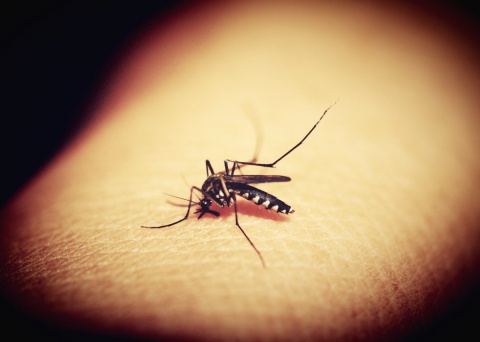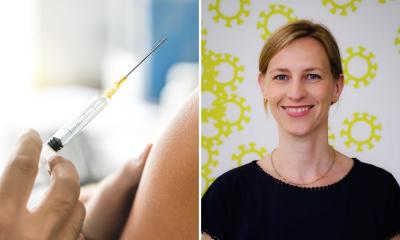News • Virus study
Close contact not at fault for Zika spread
Saliva is no way to pass a Zika virus infection. According to researchers at the University of Wisconsin–Madison who conducted studies with monkeys, casual contact like kissing or sharing a fork or spoon is not enough for the virus to move between hosts.
Scientists believe that mosquito bites are the source of most Zika virus infections in people. After infection, the Zika virus is present in blood and saliva for up to about two weeks, but it remains in bodily fluids like breast milk for weeks and semen for months. The virus can also be spread by sexual intercourse, but much about Zika remains unknown — including, until recently, whether the saliva of an infected person posed a danger.
If passing the virus by casual contact were easy, I think we would see a lot more of what we would call secondary transmission in a place like the United States.
Prof. Tom Friedrich
Low transmission risk
“If passing the virus by casual contact were easy, I think we would see a lot more of what we would call secondary transmission in a place like the United States,” says Tom Friedrich, a virology professor at the UW–Madison School of Veterinary Medicine. “But we’re not seeing clinically apparent spread of Zika throughout the continental U.S. without the presence of the mosquitoes that carry the virus, and our study helps to put into context some of the transmission risk.”
In the study rhesus macaque monkeys at the Wisconsin National Primate Research Center were infected with the strain of Zika virus that has been circulating in North and South America in recent years, and saliva was collected from the infected monkeys. The researchers swabbed the tonsils of five uninfected monkeys with the saliva, and swabbed the tonsils of three monkeys with a concentrated high dose of Zika virus in solution. None of the saliva-swabbed monkeys developed an infection — nor did a pair of monkeys who had infected saliva swabbed in their nostrils or eyelids. However, all three monkeys who had high-dose virus applied directly to their tonsils in the absence of saliva got infected (though the infection took slightly longer to develop than in monkeys infected under their skin).

Saliva thwarts infection potential
Dawn Dudley, a scientist in UW–Madison’s School of Medicine and Public Health, says the tonsils were chosen as a site for testing because they are typically a source of infection for influenza and Epstein-Barr virus.
But saliva itself may do a lot of work to thwart Zika’s infection potential. Matthew Aliota, a research scientist in the UW–Madison School of Veterinary Medicine, conducted experiments with monkey saliva and cells in the lab. “He found that if you add monkey saliva to the virus you reduce the ability of the virus to infect cells,” Friedrich said.
Source: University of Wisconsin-Madison
02.08.2017








